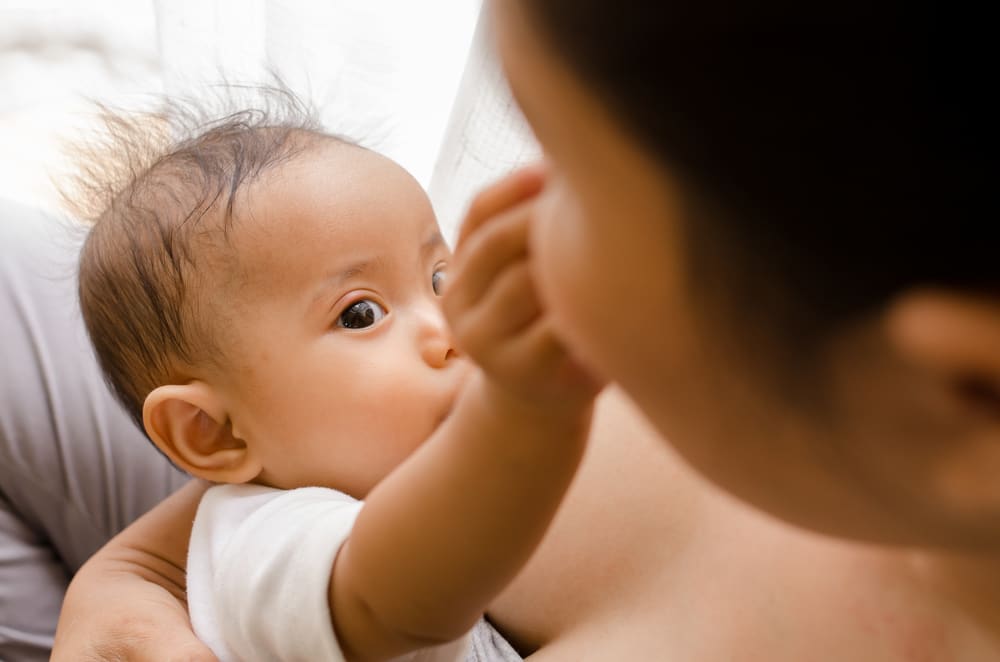Contents:
- Medical Video: Pregnancy: Making it to 39 Weeks
- Development of Infants Aged 39 Weeks
- What should be the development of a baby on week 39?
- Baby Health Ages 39 Weeks
- What do I need to discuss with the doctor on week 39?
- Which must be considered
Medical Video: Pregnancy: Making it to 39 Weeks
Development of Infants Aged 39 Weeks
What should be the development of a baby on week 39?
At week 39, babies can:
- Clapping or waving
- Chatter and say a few words, phrases and sentences
- Walk to hold on to the furniture
- Understand the word "no" but not always obey it
Babies still better understand the tone of your speech than your real words. Babies can understand when you are happy, so give specific praise, for example, "You have taken the toy correctly." The more you talk to your baby, the more things he learns about communication.
Babies begin to understand the word "no" even if they don't immediately obey it. For example, you can expect the baby to try to touch an object even if you have forbidden it. The best way is to use the word "no" separately, and when using it, move the baby to another place and you can introduce new activities to the baby.
Baby Health Ages 39 Weeks
What do I need to discuss with the doctor on week 39?
Every doctor will have a separate approach to examine the baby. The order of physical examination, the number and type of assessment techniques and procedures will also vary depending on the individual needs of the child. You can expect these things to be examined:
- Immunization, if previously it has never been given. Be sure to discuss the previous reaction.
- There may be a hemoglobin or hematocrit test to check for anemia (usually by sticking a small needle over the finger).
Caring for babies aged 39 weeks
Sore throat
Infants are rarely affected by sore throat. However, if you or someone you know like your baby's siblings experience it, keep an eye on symptoms such as swelling and tonsils bright red with white spots. Other symptoms include sore throat that lasts more than a few days, body temperature more than 38 degrees Celsius, chills, and lymph glands under the baby's jaw swelling or sore.
Contact your pediatrician if you notice any of the above symptoms or if the baby has difficulty swallowing and breathing. If a positive baby has sore throat, the doctor will treat it with antibiotics. Make sure to give the baby antibiotics until they run out, even though he already looks better before the medicine runs out. Antibiotics that are not spent will cause more severe complications.
Flat feet
In infants, flat soles are common for several reasons: First, because the baby is unable to walk, the sole of his foot has not been adequately trained to be more curved. Second, fat pads fill the arch, so that the soles of the feet are difficult to see, especially in obese babies. And when the baby starts walking, they stand with their feet open to reach balance, put a burden on the arch and give a more flat foot appearance.
In most children, flat feet will slowly improve throughout the year, and after reaching full growth, the legs will curve well. In a few children, the feet will remain flat.
Walking too early
Like standing too early, walking too early will not cause bent legs or other physical problems. In fact, these two activities are beneficial, because they will train and strengthen the muscles to walk on their own. And if babies don't wear footwear, they will help strengthen their legs. So, as long as you help, let him learn to walk. Babies who don't want to walk at this stage are certainly not forced.
Which must be considered
What do you need to watch out for when your baby is 39 weeks old?
What needs to be considered in the third week of the 9th month:
Afraid of strangers
In the first two months, babies will prefer to be with their parents. Infants under 6 months generally will give a positive response to almost all adults. Be it parents or strangers, in the eyes of babies all fall into the same category, "people who can help me meet my needs." By the age of 8-9 months, babies begin to realize which part of the biscuit is buttered; which father and mother and which guardian; and when babies want to be closer to them and drive away anyone who might try to separate them from them. At this time, even his grandparents may be rejected because the baby is very close to his parents.
Awareness of strangers may fade quickly or will not increase until almost a year old. About 2 out of 10 babies are no longer too alert. If the baby does feel afraid of strangers, don't force him to socialize. He will overcome it one day (even by itself). At times like this, warn friends and family that the baby is in an agitated stage and a sudden approach will frighten him.
You can suggest that it is better to slowly approach, for example by smiling, talking, inviting the baby to play while in your lap, rather than trying to hug or hold her.
If the baby is really not happy if left only with the caregiver, it's time to reassess the childcare situation. Maybe the caregiver cannot give the attention and affection the baby needs, even if the baby seems to be given enough attention when you are around him, or is this just an excessive fear of strangers. Some babies, especially those who breastfeed, can cry for hours if their mothers leave, even when their father or grandmother is caring for them. In cases like this, you may have to limit the time away from the child as much as possible, until the stage "do not want to separate from the mother" has passed. If this is not possible, you can use all the time to play with your baby while you are still inside the house.
What is the growth of a baby in the 40th week?












